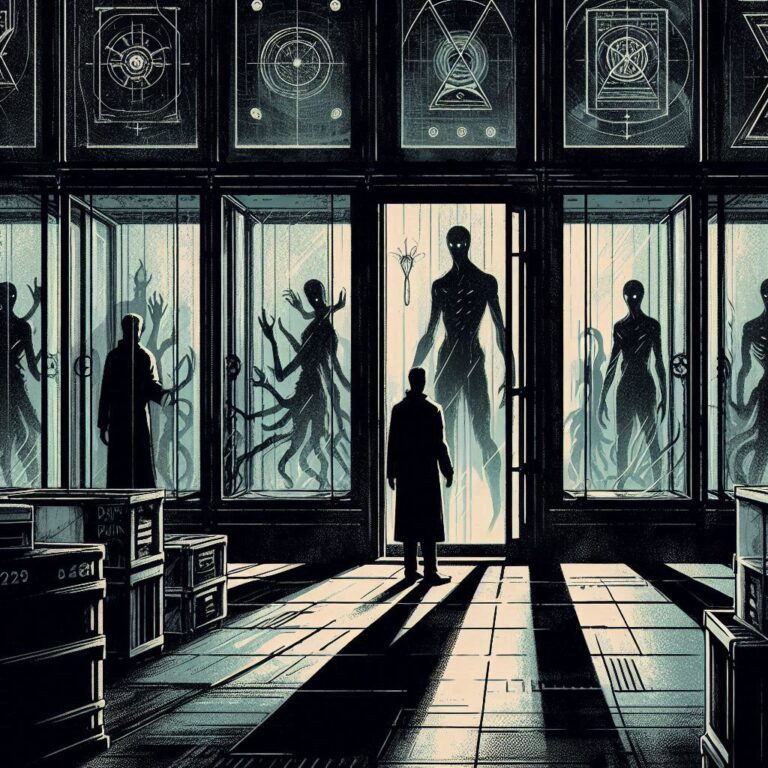Bob Dylan – Desolation Row
Version 2
Man: Hi, and welcome to our deep dive×「deep dive」は直訳すると「深く潜ること」ですが、ここでは「あるトピックについて詳しく掘り下げて学ぶこと」という意味です。ビジネスやアカデミックな場面でよく使われ、「Let's do a deep dive into...」(〜について詳しく見ていきましょう)というフレーズでよく登場します。. We’re going to talk about a song today. It’s called Desolation Row.
Woman: Okay.
Man: It’s by Bob Dylan. Have you heard of him×「Have you heard of him?」は「彼のことを聞いたことがありますか?」という意味で、相手がその人物を知っているかどうか尋ねる際に使います。この表現は、話題の人物が有名であるか、または相手がその人物を知っているべきだという前提がある場合によく使われます。?
Woman: Yes, I have. He’s very famous.
Man: He’s a famous singer. He wrote lots of songs×「lots of songs」は「たくさんの歌」という意味で、「a lot of songs」と同じ意味ですが、「lots of」の方が少しカジュアルな表現です。日常会話でよく使われます。. And today we’re going to look at the words to Desolation Row.
Woman: Sounds good×「Sounds good」は「いいね」「了解」という意味で、相手の提案や意見に賛成するときに使います。カジュアルな表現で、友人や同僚との会話でよく使われます。フォーマルな場面では「That sounds great」や「I agree」などを使う方が適切です。.
Man: Our expert is here to help us understand×「help us understand」は「私たちが理解するのを助ける」という意味です。ここでは、専門家が歌の歌詞の意味を解説してくれることを示しています。「help + 人 + 動詞の原形」は「人が~するのを助ける」という意味でよく使われる表現です。.
Woman: Hi everyone.
Man: So, um, this song, it has many strange things×「many strange things」は「多くの奇妙なもの」という意味です。「many」は「多くの」という意味で、数えられる名詞の複数形と一緒に使います。「strange things」は「奇妙なもの」という意味で、普通ではない、理解しにくいものを指します。 in it.
Woman: Yes, it does.
Man: What is Desolation Row about? What does it mean×「What does it mean?」は「それは何を意味しますか?」という意味で、相手の説明や発言の意味を尋ねる際に使います。歌や詩、映画などの作品について、そのテーマやメッセージを理解したいときに使うと効果的です。?
Woman: It’s a song about a place. But it’s not a real place×「it's not a real place」は「それは現実の場所ではない」という意味です。ここでは、Desolation Rowが物理的に存在する場所ではなく、比喩的な場所であることを示しています。. It’s like×「like」はここでは「〜のような」という意味で、比喩的な表現を作る際に使います。具体的な物事や状況を例にして、抽象的な概念や感情を説明するのに役立ちます。 a place in your mind×「mind」は「心」や「精神」を意味しますが、ここでは「考え」や「想像力」を指しています。「in your mind」は「あなたの頭の中にある」というニュアンスです。.
Man: Oh, okay.
Woman: We call this an idea. An idea is something×「something」は「何か」という意味で、具体的な名前や詳細が不明なものを指す際に使います。非常に汎用的な表現で、日常会話で頻繁に登場します。 you think. It’s not a real thing×「a real thing」は「現実のもの」という意味で、「something that exists physically or can be perceived by the senses」を指します。ここでは、アイデアが物理的な存在ではないことを強調しています。.
Man: So it’s not a real place×「not a real place」は「現実の場所ではない」という意味です。ここでは、Desolation Rowが物理的に存在する場所ではなく、比喩的な場所であることを示しています。?
Woman: That’s right×「That's right」は「その通りです」「正しいです」という意味で、相手の発言が正しいことを肯定する際に使います。カジュアルな表現ですが、ビジネスシーンでも使われることがあります。. Desolation Row is an idea. It’s an idea of a world×「It's an idea of a world」は「それはある世界についての考えです」という意味です。ここでは、Desolation Rowが具体的な場所ではなく、ある種の概念やイメージとして表現されていることを説明しています。. This world is not good. It has many problems.
Man: I see.×「I see」は「なるほど」「わかりました」という意味で、相手の説明を理解したことを伝える際に使います。カジュアルな表現ですが、ビジネスシーンでも使われることがあります。
Woman: But people go to this place in their minds. They go there to think×「They go there to think」は「彼らは考えるためにそこに行く」という意味です。「to think」は「考えるために」という目的を表す不定詞の副詞的用法です。. They go there to be different×「They go there to be different」は「彼らは違った存在になるためにそこに行く」という意味です。「to be different」は「違った存在になるために」という目的を表す不定詞の副詞的用法です。ここでは、Desolation Rowが個性を表現し、社会の規範から解放される場所であることを示唆しています。. They want to be free.
Man: So you’re saying×「So you're saying」は「つまり、あなたは~と言っているんですね」という意味で、相手の発言内容を確認したり、要約したりする際に使います。相手の言いたいことを正しく理解しているかを確認するために用いると効果的です。 it’s a bad place?
Woman: Well, it’s not all bad. It has bad things, yes, but it also has good things. It’s a place where×「where」は関係副詞で、ここでは「Desolation Row」がどのような場所なのかを説明しています。「where people can be free」は「人々が自由になれる場所」という意味です。 people can be free. They can be themselves×「They can be themselves」は「彼らは自分らしくいられる」という意味で、社会的な制約や期待から解放され、本来の自分を表現できることを示しています。. They can be alone with their thoughts×「They can be alone with their thoughts」は「彼らは自分の考えと向き合うことができる」という意味で、静かな環境で内省したり、物事を深く考えたりできることを示唆しています。.
Man: That’s interesting. So Desolation Row is a place and an idea.
Woman: Yeah.
Man: What happens in this place?×「What happens in this place?」は「この場所では何が起こりますか?」という意味で、Desolation Rowという架空の場所で起こる出来事について尋ねています。場所や状況を特定して「何が起こるか」を尋ねる際に使える表現です。 What happens in the song?
Woman: Many things happen×「Many things happen」は「たくさんのことが起こる」という意味で、具体的な出来事を説明する前に、多くの出来事が存在することを示唆しています。. We see many people.
Man: Oh.
Woman: Some of these people×「Some of these people」は「これらの人々の中には」という意味で、これから説明する人々が全体の一部であることを示しています。 are real. Some of these people are not real. They are from stories.
Man: Okay, can you give us an example×「can you give us an example」は「私たちに例を挙げてくれますか?」という意味で、具体的な例を挙げて説明を求める際に使います。「us」は話し手と聞き手を含む「私たち」を指しており、複数人に対して質問していることがわかります。? Like×「Like」はここでは「例えば」という意味で、具体的な例を挙げる際に使います。会話の中で例を導入する際によく使われる表現です。 a real person and a person from a story?
Woman: Okay. Albert Einstein is in the song.
Man: Albert Einstein?
Woman: Yes. He was a real person. He was a scientist.
Man: Right. I know.×「Right. I know.」は「そうですね。知っています。」という意味で、相手の発言に同意し、その内容について既に知っていることを伝える表現です。「Right」は同意を表し、「I know」は知識や理解があることを示します。
Woman: He was very smart. And Cinderella is in the song.
Man: Cinderella?
Woman: Yes. She is from a story. She is not a real person.
Man: Einstein and Cinderella. That’s strange.×「That's strange」は「それは奇妙ですね」という意味で、予想外のことや理解しにくいことに対して驚きや違和感を表す際に使います。ここでは、現実の人物であるアインシュタインと物語の登場人物であるシンデレラが同じ歌に登場することに対する驚きを示しています。
Woman: It is strange. Bob Dylan liked to use strange things in his songs. He wants to make us think×「make us think」は「私たちに考えさせる」という意味で、「make + 人 + 動詞の原形」の形で「人に~させる」という使役の意味を表します。ここでは、ボブ・ディランがリスナーに深く考えさせようとしていることを示しています。. He wants us to ask questions×「ask questions」は「質問をする」という意味で、疑問を持ち、探求することを促す表現です。ボブ・ディランの歌は、リスナーに物事を鵜呑みにするのではなく、自ら考え、問いを投げかけることを促しています。.
Man: Why does he×「Why does he」は「なぜ彼は」という意味で、相手の行動や考えの理由を尋ねる際に使います。疑問詞「why」は理由や原因を問う際に用いられます。 want us to think? Why does he want us to ask questions?×「Why does he want us to ask questions?」は「なぜ彼は私たちに質問をしてほしいのですか?」という意味で、相手の意図や目的を尋ねる際に使います。この質問は、ボブ・ディランがリスナーに疑問を持つことを促す理由を探求しています。
Woman: He wants us to see the world in a new way×「see the world in a new way」は「新しい方法で世界を見る」という意味で、物事に対する固定観念や先入観を捨て、異なる視点から世界を捉えることを示唆しています。. He wants us to see that the world has good things and bad things.×「He wants us to see that the world has good things and bad things.」は「彼は私たちに世界には良いものも悪いものもあるということを見てほしいのです」という意味です。世界には光と影の両面があるという現実を認識することを促しています。 He wants us to see the beauty and the ugliness.
Man: Okay. I think I understand.×「I think I understand.」は「私は理解できたと思います」という意味で、相手の説明を理解したことを伝える際に使います。「I think」は完全な確信ではないものの、理解できたということを控えめに表現しています。 He uses strange things. He wants to show us the world. He uses real people and people from stories. What do these people do×「What do these people do」は「これらの人々は何をしますか?」という意味で、歌の中に登場する人々の行動について尋ねています。 in Desolation Row?
Woman: They do many things. They talk, they sing, they fight, they love, they hate×「they hate」は「彼らは憎む」という意味で、人間が持つ負の感情である「憎しみ」を表しています。歌の中で、登場人物たちが愛し合うだけでなく、憎しみ合うこともあるという現実が描かれていることを示唆しています。, they live, they die×「they die」は「彼らは死ぬ」という意味で、人生の終わりである「死」を表しています。歌の中に登場人物たちの死が描かれている場合、人生の儚さや無常観を表現している可能性があります。.
Man: It sounds like×「It sounds like」は「~のように聞こえる」という意味で、相手の説明や描写から受けた印象を伝える際に使います。ここでは、Desolation Rowで起こる出来事が現実の人生の出来事に似ているという印象を伝えています。 real life.
Woman: It is like real life, but it’s also not like real life.×「It is like real life, but it's also not like real life.」は「それは現実の人生のようですが、同時に現実の人生のようでもありません」という意味です。Desolation Rowは現実世界を反映しつつも、現実とは異なる要素を持つことを示しています。 It’s more like×「It's more like」は「それはむしろ~のようなものです」という意味で、より適切な例えや比較を提示する際に使います。ここでは、Desolation Rowが現実よりも夢に近いものであることを示唆しています。 a dream.
Man: A dream?
Woman: Yes, a dream. Dreams are not real, but they can feel real.×「Dreams are not real, but they can feel real.」は「夢は現実ではありませんが、現実のように感じることがあります」という意味です。夢の非現実性と、夢を見ている人が感じる現実感を対比させています。
Man: So Desolation Row is strange and like a dream×「Desolation Row is strange and like a dream」は「ディソレーション・ロウは奇妙で夢のようだ」という意味です。この表現は、歌の舞台であるディソレーション・ロウが非現実的で幻想的な場所であることを示しています。?
Woman: Yes, it is. Bob Dylan’s songs are often like dreams×「are often like dreams」は「しばしば夢のようだ」という意味で、ボブ・ディランの歌が持つ非現実的で幻想的な雰囲気を表現しています。. They are full of symbols×「full of symbols」は「象徴でいっぱいだ」という意味です。ボブ・ディランの歌には、様々な象徴が用いられており、それらが歌に深い意味を与えていることを示唆しています。.
Man: What’s a symbol?
Woman: A symbol is a thing. It represents another thing.×「A symbol is a thing. It represents another thing.」は「象徴とは物であり、それは別のものを表します」という意味です。ここでは、象徴という概念を簡潔に説明しています。
Man: Okay. So the song is like a dream with many symbols?
Woman: Yes. You said that×「You said that…」は「あなたは~と言いました」という意味で、相手の発言内容を改めて確認する際に使います。過去の会話の内容を引用することで、議論をスムーズに進めることができます。 there are many people in the song. Can you tell us×「tell us」は「私たちに教えてください」という意味で、相手に情報を求める際に使います。「tell」は「話す」「伝える」という意味で、ここでは「us」(私たち)に情報を伝えることを意味しています。 about some of them?
Man: Yes, I can. We can talk about the blind commissioner×「blind commissioner」は「盲目の委員」という意味です。「blind」は「盲目の」、「commissioner」は「委員」や「長官」を意味します。ここでは、政府の重要な役職に就いているにもかかわらず、目が見えない人物を指しています。.
Woman: Okay. A commissioner is an important person in the government×「an important person in the government」は「政府の要人」という意味です。ここでは、行政や司法に関わる重要な役割を担う人物を指しています。. He helps to make the laws×「laws」は「法律」という意味です。ここでは、社会のルールや規則を制定することを指しています。.
Man: Yes, he’s important.
Woman: Yes. And in the song, he’s blind×「blind」は「盲目の」「目が見えない」という意味です。ここでは、文字通りの意味だけでなく、比喩的に「物事の本質が見えていない」「無知である」という意味も含まれている可能性があります。. He cannot see. He is in a trance×「in a trance」は「恍惚状態にある」「我を忘れている」という意味です。催眠術にかかった状態や、非常に強い感情に支配されている状態を表します。.
Man: A trance?
Woman: Yes. When you’re in a trance, you are not thinking. Someone else is controlling you.×「Someone else is controlling you.」は「誰か他の人があなたを操っている」という意味です。ここでは、盲目の委員が他の誰かの影響下にあることを示唆しています。
Man: So this commissioner, he can’t see, and someone is controlling him?
Woman: That’s right.
Man: That’s strange. He’s an important person, but he’s blind, and someone is controlling him×「someone is controlling him」は「誰かが彼を操っている」という意味です。ここでは、目が見えず、恍惚状態にある委員が、他の誰かの影響下にあることを示唆しています。この表現は、権力者が背後で操られている可能性や、外部からの影響を受けやすい状態にあることを暗示しています。.
Woman: Yes, it’s strange. But it’s also a symbol×「a symbol」は「象徴」という意味です。ある物事が別の物事を比喩的に表していることを指します。ここでは、盲目の委員が何かを象徴していることを示唆しています。. Remember we talked about symbols?
Man: Yes.
Woman: What does he symbolize×「symbolize」は「象徴する」という意味で、あるものが別のものを比喩的に表すことを指します。? It’s a symbol of power×「a symbol of power」は「権力の象徴」という意味です。ここでは、盲目の委員が権力者を象徴していることを意味しています。. People with power, sometimes they can’t see what is happening×「sometimes they can't see what is happening」は「時には何が起こっているのか見えない」という意味です。権力を持つ人は、現実を直視できないことがあるということを示唆しています。. They are blind to the problems×「blind to the problems」は「問題に気づかない」「問題を見て見ぬふりをする」という意味です。ここでは、権力者が問題に気づかない、あるいは気づいていても対処しない様子を表現しています。.
Man: Oh, I see. So the blind commissioner is a symbol of power. What about Cinderella?×「What about Cinderella?」は「シンデレラはどうですか?」という意味です。前の話題から次の話題に移る際に、スムーズに話題を変えるための表現です。 She’s from the story, right? What’s she doing×「What's she doing」は「彼女は何をしているのですか?」という意味で、シンデレラの行動や役割について尋ねる際に使います。「doing」は現在進行形を作る際に用いられます。 in Desolation Row?
Woman: In the story, Cinderella is happy. She finds a prince×「a prince」は「王子」という意味です。おとぎ話や王室の物語によく登場する男性貴族の称号です。. They get married×「get married」は「結婚する」という意味です。結婚式を挙げて夫婦となることを表します。「marry」よりも口語的で、日常会話でよく使われます。. She has a good life×「has a good life」は「良い生活を送る」「幸せな人生を送る」という意味です。物質的に豊かであるだけでなく、精神的にも満たされた状態を表します。.
Man: Right.
Woman: But in Desolation Row, Cinderella is different×「in Desolation Row, Cinderella is different」は「Desolation Rowでは、シンデレラは違います」という意味です。ここでは、童話で描かれるシンデレラとは異なる、ボブ・ディランの歌におけるシンデレラ像を説明しています。. She is not happy. She is poor×「She is poor」は「彼女は貧しい」という意味です。ここでは、シンデレラが経済的に困窮している状態を表しています。. She is alone.×「She is alone」は「彼女は一人ぼっちです」という意味で、孤独な状態を表します。 She doesn’t have a prince.
Man: Why is she different in the song?
Woman: Bob Dylan is showing us that life is not always like a story. Life can be hard.×「Life can be hard」は「人生は厳しいことがある」という意味です。苦労や困難を伴う人生の現実を表しています。 Life can be sad.
Man: So Cinderella, she’s a symbol of sadness×「a symbol of sadness」は「悲しみの象徴」という意味です。ここでは、シンデレラが歌の中で悲しみや苦難を象徴していることを表しています。 in the song?
Woman: Yes, you could say that.×「Yes, you could say that」は「はい、そう言えます」という意味で、相手の発言に同意する際に使います。少し控えめな表現で、断定を避けるニュアンスが含まれています。 She is a symbol of sadness. She shows us that even people in stories can have problems×「that even people in stories can have problems」は「物語の中の人物でさえ問題を抱えることがある」という意味です。現実世界だけでなく、物語の中でも困難や苦難が存在することを示唆しています。.
Man: I understand. So the blind commissioner is a symbol of power, and Cinderella is a symbol of sadness×「Cinderella is a symbol of sadness」は「シンデレラは悲しみの象徴です」という意味です。シンデレラが歌の中で悲しみや苦難を象徴する存在として描かれていることを明確に示しています。.
Woman: Yes.
Man: Who else×「Who else」は「他に誰か」という意味で、既に話題に上がった人物以外にも、他に該当する人物がいるかを尋ねる際に使います。 is in the song?
Woman: The Good Samaritan×「The Good Samaritan」は「良きサマリア人」という意味で、新約聖書に登場するたとえ話に出てくる人物です。困っている人を無償で助ける親切な人の象徴として用いられます。. He is from the Bible×「the Bible」は「聖書」という意味で、ユダヤ教とキリスト教の聖典です。多くの物語や教えが含まれており、西洋文化に大きな影響を与えています。.
Man: The Bible?
Woman: Yes. It’s a religious book×「a religious book」は「宗教的な書物」という意味で、特定の宗教の教えや信仰について書かれた本を指します。. Christians×「Christians」は「キリスト教徒」という意味です。キリスト教を信仰する人々を指します。 read the Bible.
Man: Okay.
Woman: The Good Samaritan, he helps people in the Bible. He’s a good person.
Man: He sounds like a good person. What does he do in the song?
Woman: He goes to a carnival×「a carnival」は「カーニバル」という意味で、移動遊園地や催し物を指します。ゲームや乗り物、屋台などが並び、多くの人々が集まって楽しむ場所です。.
Man: A carnival? What’s a carnival?
Woman: A carnival is a place. There are games and rides at a carnival.
Man: Oh, okay.
Woman: People have fun at carnivals, but carnivals can also be dangerous×「carnivals can also be dangerous」は「カーニバルは危険な場合もある」という意味です。人混みや夜間の開催など、安全面でのリスクがあることを示唆しています。. There can be bad people at carnivals.×「There can be bad people at carnivals.」は「カーニバルには悪い人がいる可能性があります」という意味で、犯罪やトラブルに巻き込まれるリスクがあることを示唆しています。
Man: So why is the Good Samaritan, he’s a good person, why is he at the carnival?
Woman: It’s another symbol. It’s a symbol of how even good people can be tempted×「a symbol of how even good people can be tempted」は「善人ですら誘惑されることがあることの象徴」という意味です。どんなに良い人でも、悪事や誘惑に直面する可能性があるということを示唆しています。. They can be tempted×「tempted」は「誘惑される」という意味です。何か魅力的なものによって、悪いことや間違ったことをしたくなる状態を表します。 to do bad things. They can make bad choices×「make bad choices」は「悪い選択をする」という意味で、誤った判断や行動をすることを指します。.
Man: Oh, okay. So even the Good Samaritan, he can be bad?
Woman: Yes.
Man: Yeah. Bob Dylan wants to show us that everyone has good and bad inside×「everyone has good and bad inside」は「誰もが良い面と悪い面を持っている」という意味です。人間は善悪の両面を持つ複雑な存在であることを示唆しています。.
Man: I see. The blind commissioner, he can’t see. Cinderella, she’s sad. And the Good Samaritan, he’s at a carnival. What about Ophelia? I think she’s from a play×「a play」は「演劇」という意味です。舞台上で役者が演じる物語形式の芸術表現です。.
Woman: You’re right. Ophelia is from a play.×「Ophelia is from a play.」は「オフィーリアは演劇の登場人物です。」という意味です。オフィーリアが特定の演劇作品から来ていることを明確に示しています。
Man: What play is it?
Woman: It’s by Shakespeare×「Shakespeare」は「シェイクスピア」という意味で、16世紀から17世紀にかけて活躍したイギリスの劇作家、詩人です。多くの傑作を残し、英語圏の文学に多大な影響を与えました。. It’s called Hamlet×「Hamlet」は「ハムレット」という意味で、シェイクスピア作の悲劇です。主人公ハムレットの復讐劇を描いた作品として有名です。.
Man: Hamlet. I’ve heard of that.
Woman: Ophelia is sad in the play. She loves a man, but this man, he does not love her. She is very sad, and she kills herself×「she kills herself」は「彼女は自殺する」という意味です。自ら命を絶つ行為を表す表現です。.
Man: She kills herself?
Woman: Yes, she does. It’s very sad.
Man: What does she do in the song?
Woman: She’s in the song, too. And she is still sad. She is looking for her lover, the man she loves, but he is not there.×「She is looking for her lover, the man she loves, but he is not there.」は「彼女は恋人を探しているが、彼はいない」という意味です。失恋の悲しみや、愛する人を失った喪失感を表現しています。
Man: So she is still sad×「still sad」は「まだ悲しい」という意味です。過去の出来事による悲しみが現在まで続いていることを表します。 in Desolation Row?
Woman: Yes, she is. Bob Dylan, he uses her to show us something. He wants to show us that sadness can follow us×「sadness can follow us」は「悲しみは私たちにつきまとうことがある」という意味です。悲しみは簡単に消えるものではなく、長く続く可能性があることを示唆しています。. It can stay with us for a long time×「It can stay with us for a long time」は「悲しみは長い間私たちと共にいることがある」という意味です。悲しみが長引く可能性や、心の傷が癒えるまでに時間がかかることを示唆しています。, even in Desolation Row.
Man: So we have the blind commissioner, he’s a symbol of power. We have Cinderella, she’s a symbol of sadness. We have the Good Samaritan, he’s a symbol of temptation×「a symbol of temptation」は「誘惑の象徴」という意味です。ここでは、良きサマリア人が、カーニバルという誘惑の場に身を置いていることから、いかに善人であっても誘惑に抗えないことがあるということを象徴していると考えられます。. And we have Ophelia. She’s a symbol of sadness that follows us.×「She's a symbol of sadness that follows us.」は「彼女は私たちにつきまとう悲しみの象徴です」という意味で、オフィーリアが、過去の出来事や心の傷から逃れられない悲しみを象徴していることを表しています。
Woman: That’s right. They are all symbols. And they’re all part of Desolation Row. They are all part of this world that Bob Dylan created. This world is strange and beautiful.
Man: This is all very interesting, but it’s a lot to think about×「it's a lot to think about」は「考えることがたくさんある」という意味です。情報量が多く、理解や整理に時間や労力が必要な状況を表します。.
Woman: It is a lot to think about. But that’s okay. Bob Dylan’s songs, they make us think, they make us feel×「they make us feel」は「私たちに感じさせる」という意味で、「make + 人 + 動詞の原形」の形で「人に~させる」という使役の意味を表します。ここでは、ボブ・ディランの歌が、様々な感情を引き起こす力を持っていることを示しています。, they make us see the world in a new way×「see the world in a new way」は「新しい視点で世界を見る」という意味です。これまでとは異なる考え方や見方で、世界を捉え直すことを促しています。.
Man: Okay. We need to think about all this. We have a lot to learn about Desolation Row.
Woman: Yes, we do. There are many more people to talk about and many more symbols to understand, but we can do it. We just need to take it slow×「take it slow」は「ゆっくりやる」という意味です。焦らず、時間をかけて物事に対処することを勧める表現です。. We need to think about one thing at a time×「think about one thing at a time」は「一度に一つのことについて考える」という意味です。複数のことを同時に考えようとせず、一つずつ焦らずに考えることを勧める表現です。.
Man: One thing at a time?
Woman: Yes.
Man: Okay, let’s do that×「let's do that」は「そうしましょう」という意味で、提案された行動や方針に賛成し、それを実行することを示す際に使います。. We talked about some people in the song: the blind commissioner, Cinderella, the Good Samaritan, and Ophelia. They are all symbols. They show us different things about life.
Woman: Right. Now we can talk about Einstein.
Man: Yes. Einstein. He’s a scientist, right?
Woman: Yes, he is. A very famous scientist.
Man: Yes, very famous. What’s he doing in Desolation Row?
Woman: He’s in the song, but he’s not like the Einstein we know. He’s disguised as Robin Hood.×「He's disguised as Robin Hood」は「彼はロビン・フッドに変装している」という意味です。「disguised as」は「~に変装して」という意味で、本来の姿を隠して別人になりすましていることを表します。
Man: Disguised? What does disguised mean?
Woman: It means he’s pretending to be someone else×「he's pretending to be someone else」は「彼は誰か他の人になりすましている」という意味です。自分の本当の身元を隠して、別人であるかのように振る舞っていることを表します。. He’s wearing a costume×「wearing a costume」は「衣装を着ている」という意味です。ここでは、変装のために特別な服を着ていることを表します。. He’s hiding who he really is.×「He's hiding who he really is.」は「彼は本当の自分を隠している」という意味です。自分の正体や本性を隠している状態を表します。
Man: Oh, okay. Why is he hiding?
Woman: That’s a good question. Maybe he doesn’t want people to recognize him.×「Maybe he doesn't want people to recognize him.」は「もしかしたら彼は人々に気づかれたくないのかもしれません」という意味で、正体を知られることを恐れている可能性を示唆しています。 Maybe he wants to be someone else. Maybe he’s tired of×「tired of」は「~に飽きた」「~にうんざりしている」という意味です。ある状態や状況に嫌気がさしていることを表します。 being Einstein.
Man: He’s with a monk×「monk」は「修道士」「僧侶」という意味です。特定の宗教の戒律に従って生活する男性の宗教者を指します。, right?
Woman: Yes, he’s with a monk.
Man: What’s a monk?
Woman: A monk is a religious person×「a religious person」は「宗教家」「信心深い人」という意味で、特定の宗教を信仰し、その教えに従って生活する人を指します。. He lives in a monastery×「monastery」は「修道院」という意味です。修道士や修道女が共同生活を送る宗教施設です。.
Man: What’s a monastery?
Woman: It’s a place where monks live. They pray×「pray」は「祈る」という意味です。神や仏などに願い事をすることを表します。 there, and they help people.
Man: Okay, so Einstein, the scientist, is pretending to be Robin Hood, and he’s with a monk. This is very strange.
Woman: Yes, it is strange. And the monk, he’s jealous of×「he's jealous of」は「彼は~を嫉妬している」という意味です。「jealous of」の後に、嫉妬の対象となる人や物がきます。 Einstein.
Man: Jealous? What does jealous mean?
Woman: It means he wants what Einstein has. He wants to be famous like Einstein×「famous like Einstein」は「アインシュタインのように有名になる」という意味です。「like」は「~のように」という意味で、ここではアインシュタインと比較しています。. He wants to be smart like Einstein.×「He wants to be smart like Einstein.」は「彼はアインシュタインのように賢くなりたいと思っている」という意味です。
Man: Why is he jealous?
Woman: Maybe he thinks Einstein is better than him.×「Maybe he thinks Einstein is better than him.」は「もしかしたら、彼はアインシュタインが自分よりも優れていると思っているのかもしれません。」という意味です。他者と比較して劣等感を感じている可能性を示唆しています。 Maybe he thinks Einstein’s life is easier than his life×「Einstein's life is easier than his life」は「アインシュタインの人生は自分の人生よりも楽だ」という意味で、他人の人生を羨んでいる様子を表します。.
Man: But Einstein is hiding. He doesn’t want to be Einstein.
Woman: That’s true. It’s a strange situation×「a strange situation」は「奇妙な状況」という意味です。理解し難い状況や、矛盾した状況を表します。.
Man: It is strange. What does it mean?
Woman: It’s hard to say for sure, but maybe Bob Dylan is showing us that even famous and smart people have problems. Even they want to be someone else sometimes.×「Even they want to be someone else sometimes.」は「彼らでさえ、時には誰か別の人になりたいと思うことがある」という意味です。有名で賢い人であっても、悩みや不満を抱え、現状を変えたいと願うことがあるということを示唆しています。
Man: So Einstein, he’s a symbol, like the other people in the song?
Woman: Yes, he is a symbol. He’s a symbol of fame×「a symbol of fame」は「名声の象徴」という意味で、ここではアインシュタインが、名声を得ることの難しさや、名声に伴う苦悩を象徴していると考えられます。. He’s a symbol of intelligence×「intelligence」は「知性」「知能」という意味です。ここでは、アインシュタインが非常に高い知性を持つ人物であることを表しています。.
Man: Okay.
Woman: But he’s also a symbol of the problems that come with those things×「a symbol of the problems that come with those things」は「それらのものに伴う問題の象徴」という意味です。ここでは、名声や知性といった一見すると良いものにも、それなりに苦労や問題が伴うということを、アインシュタインを通して表現していると考えられます。. He has fame. He has intelligence, but he’s not happy.
Man: Right. He wants to hide. He wants to be someone else.
Woman: Exactly.×「Exactly.」は「その通りです。」という意味で、相手の発言に完全に同意する際に使います。 It shows us that fame and intelligence don’t always make you happy×「fame and intelligence don't always make you happy」は「名声と知性が必ずしもあなたを幸せにするとは限らない」という意味です。名声や知性といったものが、幸福の絶対条件ではないことを示唆しています。.
Man: That’s sad. I thought Einstein was happy. He was a genius×「a genius」は「天才」という意味です。並外れた才能や知性を持つ人を指します。.
Woman: We don’t really know if he was happy or not×「We don't really know if he was happy or not」は「彼が本当に幸せだったかどうかは実際にはわからない」という意味です。ここでは、歴史上の人物であるアインシュタインの個人的な感情について、断定的な判断を避けるニュアンスが表現されています。, but in the song, he’s not happy.
Man: Okay, so Einstein is a symbol of fame and intelligence, and he’s not happy. What does he do in the song?
Woman: He does some strange things. He sniffs×「sniffs」は「嗅ぐ」という意味です。鼻で匂いを吸い込む動作を表します。 drainpipes.
Man: Drainpipes? What are drainpipes×「drainpipes」は「排水管」という意味です。雨水や汚水を流すための管です。?
Woman: They are pipes×「pipes」は「パイプ」「管」という意味です。ここでは、排水管を指しています。. The water goes down the pipes.
Man: Oh, okay. He sniffs drainpipes?×「He sniffs drainpipes?」は「彼は排水管を嗅いでいるのですか?」という意味で、アインシュタインの奇妙な行動に対する驚きを表しています。
Woman: He does, and he walks on his hands×「he walks on his hands」は「彼は逆立ちして歩く」という意味です。ここでは、アインシュタインの奇妙な行動を説明しています。.
Man: That’s very strange.
Woman: It is strange. But that’s Bob Dylan. He likes to use strange images in his songs. He wants us to see things in a new way.
Man: The world can be a strange place.
Woman: That’s true. And Desolation Row, it’s a strange place in that strange world.
Man: What about Doctor Filth? I think you mentioned him before. Is he in the song, too?
Woman: Yes, Doctor Filth×「Doctor Filth」は「ドクター・フィルス」という意味で、歌に登場する悪徳医師の名前です。「filth」は「汚物」「不潔なもの」を意味し、彼の性格や行いを暗示しています。 is in the song.
Man: Who is he?
Woman: He’s a doctor, but he’s not a good doctor.
Man: Why is he not a good doctor?
Woman: His patients×「patients」は「患者」という意味です。医師の診察や治療を受ける人のことを指します。, they want to kill him×「want to kill him」は「彼を殺したい」という意味です。「want to」は「~したい」という願望を表します。.
Man: Patients? What are patients?
Woman: Patients are people who are sick. They go to the doctor to get better×「get better」は「良くなる」「回復する」という意味です。病気や怪我などが治ることを表します。.
Man: Oh, okay. But Doctor Filth’s patients want to kill him?
Woman: Yes, they do, because he’s a bad doctor.
Man: What does he do that’s so bad?
Woman: He hurts×「hurts」は「傷つける」という意味の動詞です。ここでは、医師が患者を傷つける、つまり適切な治療をしない、あるいは誤った治療をすることで、患者の状態を悪化させていることを意味します。 them. He doesn’t help them. He makes them sicker.×「He makes them sicker.」は「彼は彼らをより病気にさせる」という意味です。医師のせいで患者の病状が悪化していることを示しています。
Man: That’s terrible.×「That's terrible.」は「それはひどい」という意味で、相手の言葉に対して強い非難や嫌悪感を示す際に使います。
Woman: It is terrible. And his nurse×「nurse」は「看護師」という意味です。医師の指示の下で、患者の世話や治療の補助を行う医療従事者を指します。, she helps the patients.
Man: A nurse? What’s a nurse?
Woman: A nurse helps the doctor. She takes care of×「She takes care of」は「彼女は~の世話をする」という意味です。「take care of」は世話をする、面倒を見るという意味で、人や動物、物など様々な対象に使えます。 the patients.
Man: So the nurse is helping the patients kill Doctor Filth?
Woman: Yes, she is. She gives them cyanide×「cyanide」は「青酸カリ」という意味で、猛毒の化学物質です。少量でも致死量となり、非常に危険な物質です。.
Man: Cyanide?
Woman: Cyanide is a poison×「poison」は「毒」という意味です。摂取すると健康に害を及ぼす物質を指します。. It can kill you.
Man: Oh. So she gives them poison. Why does she do that?
Woman: She wants to help them kill Doctor Filth.
Man: But killing is wrong×「killing is wrong」は「殺人は間違っている」という意味で、道徳的に殺人が許されない行為であることを示しています。.
Woman: Yes, it is. But remember, this is just a song.×「But remember, this is just a song.」は「でもこれはただの曲だということを覚えておいて」という意味です。歌は現実世界とは異なり、フィクションや比喩的な表現が含まれることを示唆しています。 It’s telling a story.
Man: Okay. It’s a very strange story. Why is this story in the song? What does it mean?
Woman: Maybe Bob Dylan is showing us the dark side of life×「the dark side of life」は「人生の暗い側面」という意味です。苦しみや悲しみ、不正など、ネガティブな出来事を指します。.
Man: The dark side?
Woman: Yes. The side where people do bad things to each other×「people do bad things to each other」は「人々が互いに悪いことをする」という意味で、人間関係におけるネガティブな行動や、悪意のある行為を指します。, the side where people get hurt×「people get hurt」は「人々が傷つく」という意味で、精神的または肉体的な苦痛を受けることを表します。.
Man: That’s a scary thought×「a scary thought」は「恐ろしい考え」という意味で、不安や恐怖を引き起こすような考えを指します。.
Woman: It is a scary thought, but it’s important to think about these things. We need to understand the world, even the dark parts of the world.
Man: So Doctor Filth, he’s a symbol of the dark side of life?
Woman: Yes, you could say that.×「Yes, you could say that.」は「はい、そう言えるでしょう。」という意味で、相手の発言に同意しつつも、他の解釈の可能性も示唆する表現です。 He represents×「represents」は「~を表す」「~を象徴する」という意味です。ここでは、Doctor Filthが悪や不正といったものを象徴していることを示しています。 the bad things that happen in the world.
Man: This song, it has so many strange things in it. It’s hard to understand×「hard to understand」は「理解するのが難しい」という意味です。複雑な内容や、抽象的な表現などで、意味を理解するのに苦労する様子を表します。.
Woman: It is hard to understand, but it’s worth trying to understand×「it's worth trying to understand」は「理解しようと努力する価値がある」という意味です。難しいことでも、理解することで得られるものがあるため、挑戦する価値があることを示唆しています。. There’s a lot to learn from Desolation Row.
Man: I want to learn more. What else can you tell me? So we talked about many people in Desolation Row: Einstein, Cinderella. They’re all very strange.
Woman: Yes, they are. But they are interesting, too.
Man: And they all have problems.
Woman: That’s right. Bob Dylan uses these people to show us something. He wants to tell us about life. Life is not always easy. It’s full of problems.×「It's full of problems.」は「人生は問題だらけだ」という意味です。様々な困難や課題に直面することを表します。
Man: So Desolation Row, it’s like life×「it's like life」は「それは人生のようだ」という意味です。ここでは、Desolation Rowが人生のある側面を表していることを示唆しています。?
Woman: You could say that.×「You could say that.」は「そう言えるでしょう。」という意味で、相手の発言に同意しつつも、断定的な表現を避けるニュアンスが含まれています。 It’s like one part of life, the part where we are alone×「the part where we are alone」は「私たちが孤独である部分」という意味で、誰にも理解されず、一人ぼっちだと感じる人生の一側面を表します。, the part where we feel sad.
Man: But it’s also a place in our minds, right? It’s a place where people can go to think.
Woman: Yes. They go there to be different. They go there to escape from×「escape from」は「~から逃れる」という意味です。何か嫌なことや辛いことから逃れたいという気持ちを表します。 the world, to escape their problems.
Man: So it’s a bad place and a good place?
Woman: Yes. It is both. It’s a place of contradictions×「contradictions」は「矛盾」という意味です。ここでは、Desolation Rowが良い場所でもあり、悪い場所でもあるという相反する性質を持っていることを表しています。.
Man: Contradictions? What are contradictions?
Woman: Contradictions are two things that are opposite×「opposite」は「反対の」「正反対の」という意味です。性質や方向、意見などが全く異なる二つのものを比較する際に使います。.
Man: Opposite?
Woman: Yes, like good and bad, happy and sad, black and white. Desolation Row is full of contradictions, just like life.
Man: I see. I think I’m starting to understand.×「I think I'm starting to understand.」は「少し理解し始めてきたと思います」という意味で、まだ完全には理解していないものの、徐々に内容が把握できてきたことを表します。 So what does it all mean?×「what does it all mean?」は「結局どういう意味ですか?」という意味で、複雑な説明や状況全体の意味を尋ねる際に使います。 What is Bob Dylan trying to tell us with this song?
Woman: That’s a good question×「That's a good question」は「それは良い質問ですね」という意味で、相手が重要なポイントを突いた質問をした際に使います。, and there is no easy answer×「there is no easy answer」は「簡単な答えはない」という意味で、複雑な問題や、様々な解釈が可能な問題に対して、明確な答えを出すのが難しいことを表します。, but maybe he’s trying to tell us this: life is complicated×「life is complicated」は「人生は複雑だ」という意味です。人生には様々な出来事が起こり、単純に理解したり、解決したりできない問題が多いことを表します。. It’s full of strange things, beautiful things, ugly things, happy things, sad things, and we need to accept all of it×「we need to accept all of it」は「私たちはそれをすべて受け入れる必要がある」という意味です。良いことだけでなく、悪いことも含めて、人生の様々な側面を受け入れることの重要性を説いています。.
Man: We need to accept all of it, even the bad things?
Woman: Yes, even the bad things. The bad things, they are a part of life.×「The bad things, they are a part of life.」は「悪いことも人生の一部だ」という意味です。 They make us who we are.×「They make us who we are.」は「それらは私たちを私たちたらしめる」という意味です。良い経験だけでなく、悪い経験もまた、人格形成に影響を与えることを示唆しています。 They teach us things.×「They teach us things.」は「それらは私たちに物事を教える」という意味です。悪い経験から学ぶことがあるということを示唆しています。 They make us stronger.×「They make us stronger.」は「それらは私たちを強くする」という意味です。困難な経験を乗り越えることで、精神的に成長できることを示唆しています。
Man: That’s a hard lesson to learn×「a hard lesson to learn」は「学ぶのが難しい教訓」という意味です。理解したり、受け入れたりするのに苦労するような人生の教訓を指します。.
Woman: It is a hard lesson, but it is an important one.
Man: So we should listen×「we should listen」は「私たちは聴くべきだ」という意味で、何かを聴くことの重要性を示す際に使います。 to Desolation Row. We should think about×「We should think about」は「私たちは~について考えるべきだ」という意味で、特定の物事や問題について熟考することを勧める際に使います。 these things.
Woman: Yes. Listen to the song, read the words, think about the people, think about the symbols, think about what it means to you.
Man: I will. Thank you for helping me to understand this song. It’s a very strange song, but it’s beautiful, too.
Woman: You’re welcome. I’m glad we could×「I'm glad we could」は「~できてよかった」という意味で、何かができて満足している気持ちを伝える際に使います。 talk about it.
Man: I learned a lot today. I hope our listeners did, too.
Woman: Me too. Desolation Row, it’s a song that makes you think×「a song that makes you think」は「考えさせる歌」という意味です。歌詞やメロディーを通して、リスナーに深い思考を促すような歌を指します。. It makes you feel. It’s a song that stays with you.×「It's a song that stays with you.」は「心に残る歌」という意味です。聴いた後も、歌詞やメロディー、そして歌が伝えるメッセージが、記憶に残り続けるような印象的な歌を指します。
Woman: I agree.
Man: Thank you for listening to our deep dive.






